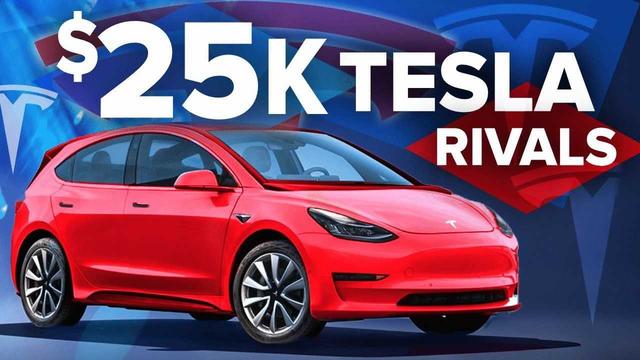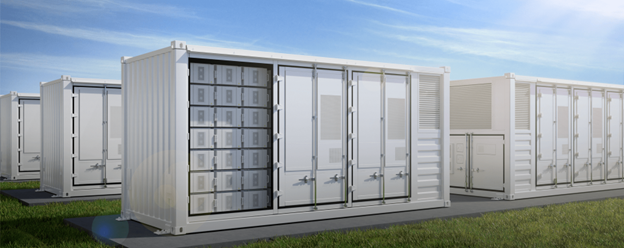The big news from Tesla’s Battery Day in 2020 was the somewhat nonchalant announcement that the company would be making a $25,000 car with fully autonomous capabilities. The implication at the time was that this vehicle could arrive as soon as 2023. Now Elon Musk has disappointed everyone by stating that Tesla isn’t working on this car after all, so there is no current estimation when it might be expected.
The announcement came during a very positive call about Tesla’s Q4 2021 earnings, which included revenue and shareholder profits that exceeded expectations. But when asked about the much longed for $25,000 car, he said: “We’re not currently working on the $25,000 car. At some point, we will, but we have enough on our plate right now, too much on our plate, frankly.”
This subsequently caused quite a storm on Twitter. Tesla watchers will find this all very typical of Elon Musk, though. The capricious billionaire is not a stranger to making announcements that have either proved to be rather optimistic regarding timing or bordering on fictional. On the other hand, Tesla has delivered a lot of what was promised (as has SpaceX). Only achieving some claims due to an overabundance of them is also pretty much de rigueur for “fail better, fail faster” entrepreneurialism. Tesla fans are so looking forward to the Cybertruck, for example, that most of them seem to be tolerating its frequent delays (it’s now expected early 2023).
The underlying factor in this case is that since late 2020, Tesla’s focus has shifted even more forcefully towards the company’s plans to lead the way with self-driving cars. In the same earnings discussion, Musk said: “The thing that overwhelmingly matters is when is the car autonomous? At the point in which it is autonomous, the cost of transport drops by, I don’t know, a factor of four or five.”
MORE FOR YOUIs Carbon Capture Another Fossil Fuel Industry Con?
Sustainable Fashion Wants Brands To Redefine Business Growth
Trouble With Predicting Future Of Transportation Is That Today Gets In The Way

Tesla didn’t hold a Battery Day in 2021, but it did have an AI Day in August. The most-reported announcement was the Tesla Bot, with Elon Musk promising a prototype this year. I’d have to recommend taking this timeline with a handful of salt, but Tesla is investing heavily in the most powerful AI-specialist datacenter in the world, called Project Dojo. It has even designed its own D1 chip for this datacenter, which Tesla claims will enable Project Dojo to deliver 1.1 exaFLOPS of compute power – making it one of the fastest, if not the fastest supercomputer in the world.
The primary focus of this supercomputer will be to fast-track the development of Tesla’s autonomous driving capabilities. These are famously undergoing a wide beta test in California and a handful of other US states. These early adopters will be collecting a heap of information that can be fed back into the central datacenter to be crunched into better systems that will roll out after that. As the system improves, more people will get to test it, feeding in yet more information, and the rate of improvement will increase. Elon Musk is clearly making a huge bet on autonomous driving and is aiming to get there ahead of other manufacturers as Tesla did with many aspects of EV technology.
Why does Elon Musk consider FSD to be more of a gamechanger than a new benchmark in EV affordability? Electrification is not the only factor in the massive shift in transportation currently underway. Not only are many countries, particularly China and Europe, making a rapid change from fossil fuel to electric, but sales of bikes and ebikes are increasing in popularity. Another recent phenomenon of the last decade is obviously the rise of app-based taxi firms like Uber and Lyft, as well as services where you can rent a car that you find parked in the local area for just a few hours at a time.
The obvious trajectory of these trends is less car ownership in general. When the time comes that self-driving is dependable and the technology is available in reasonably priced everyday cars, the need to own an auto will be further eroded. If there are cars you can hail just a few minutes away from where you can live, either for local journeys or longer distances, it could easily be much cheaper and more convenient to use these only when you need to, not own a car yourself. Public transport, bikes, and scooters can take care of personal journeys that don’t involve lots of baggage.
This appears to be why Musk is now putting the emphasis on FSD rather than another new benchmark in EV pricing. Reliable autonomous driving really could have a much greater impact on transport, reducing the number of cars we need, the number on the road, and in turn reducing the raw materials we use to make them. In this respect, autonomous vehicles could be even more eco-friendly than EVs.









